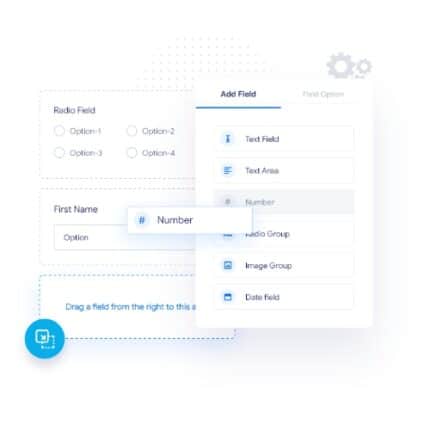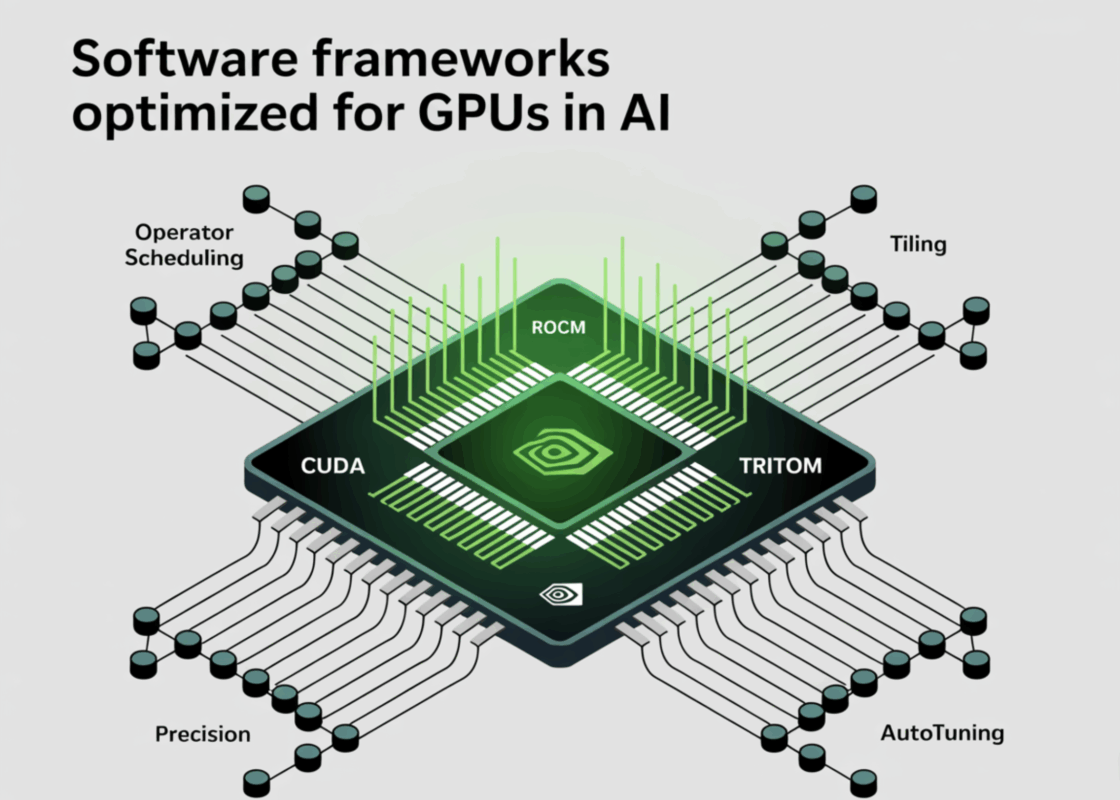Blog
The healthcare industry is experiencing a significant transformation through the integration of artificial intelligence (AI). From enhancing patient care to streamlining operations, AI is a game-changer that addresses a variety of pressing challenges. As healthcare professionals and organizations aim to provide better services, understanding the top uses and benefits of AI becomes increasingly essential. In this article, we will delve into the remarkable applications of AI in healthcare and how it can transform your practice.
Understanding AI’s Role in Healthcare
AI employs advanced algorithms and machine learning to analyze vast amounts of data. This capability enables healthcare providers to make more informed decisions, improving patient outcomes and operational efficiency. By harnessing AI, healthcare facilities can not only save time but also enhance their diagnostic and treatment capabilities.
Top Applications of AI in Healthcare
-
Improved Diagnostics
- AI algorithms excel in analyzing medical images, data from scans, and genetic information. These systems assist doctors in identifying conditions, such as tumors, with far greater accuracy than traditional methods. For example, AI can analyze X-rays or MRIs to detect subtle changes that may indicate serious health issues.
-
Personalized Treatment Plans
- AI can analyze patient data, including medical history and genetic factors, to recommend personalized treatment regimens. Precision medicine is on the rise as AI tools offer tailored solutions that cater specifically to individual needs, improving patient satisfaction and outcomes.
-
Predictive Analytics
- Utilizing predictive analytics, AI can forecast patient deterioration, hospital readmission rates, or disease outbreaks. By predicting trends, healthcare providers can proactively address potential crises, leading to better resource management and patient care.
-
Virtual Health Assistants
- Many healthcare organizations are deploying AI-powered virtual assistants to enhance patient engagement. These bots can help answer common questions, schedule appointments, and provide medication reminders, ensuring that patients remain informed about their healthcare.
- Robotic Surgery
- AI-driven robotic systems are now being used in surgical procedures, improving precision and minimizing risks. These advanced robots assist surgeons by providing enhanced visualization and control during intricate operations, leading to quicker recovery times for patients.
Benefits of AI in Healthcare
-
Enhanced Efficiency
- AI reduces the administrative burden on healthcare workers by automating routine tasks like data entry and scheduling. This efficiency allows medical professionals to devote more time to patient care.
-
Cost Reduction
- By optimizing procedures and minimizing errors, AI can significantly reduce operational costs. The initial investment in AI technology can lead to notable long-term savings for healthcare organizations.
-
Accurate Data Analysis
- AI’s ability to sift through large volumes of data facilitates real-time decision-making. This improves clinical outcomes and ensures that treatments are based on the best available evidence.
- Increased Accessibility
- AI-powered tools can help bridge the gap in healthcare access, especially in underserved areas. Telehealth platforms combined with AI can connect patients with specialists regardless of their geographical location.
Challenges and Considerations
Despite its numerous advantages, the implementation of AI in healthcare does come with challenges.
-
Data Privacy Concerns
- Managing patient data securely is crucial. Healthcare organizations must ensure compliance with regulations such as HIPAA to protect sensitive information.
- Integration Issues
- Integrating AI systems with existing healthcare technologies can be complex. Organizations need to invest in training and support to facilitate a smooth transition.
FAQs: AI in Healthcare
-
How does AI improve patient care?
AI enhances patient care by providing accurate diagnostics, personalized treatment plans, and timely follow-ups. -
What are the limitations of AI in healthcare?
While AI can process vast data quickly, it still requires human oversight to ensure accuracy and ethical considerations. - Is AI cost-effective for healthcare providers?
Initially, AI investments can be high, but the long-term benefits, including reduced operational costs and improved patient outcomes, generally outweigh the expenses.
Practical Tips for Implementing AI in Healthcare
-
Start Small
- Begin with a pilot project that involves a specific aspect of your practice. This allows you to test AI technologies before scaling up.
-
Engage Stakeholders
- Include healthcare professionals, patients, and IT specialists in the decision-making process to ensure that the implementation meets everyone’s needs.
- Continuous Training
- Provide ongoing training to your team. Staying updated on AI developments is essential for maximizing the technology’s potential.
Conclusion
The integration of AI into the healthcare industry offers transformative benefits that can significantly enhance patient care and streamline operations. As healthcare continues to evolve, leveraging AI will be crucial for organizations aiming to stay competitive and deliver the best possible outcomes. To explore further on this subject, visit Theme Bazar BD for more insights and resources.
Additional Resources
- For an in-depth look at AI technology, visit HealthIT.gov.
- To explore more about personalized medicine, check out National Institutes of Health.
By embracing AI, healthcare providers can transform the way they operate, leading to better healthcare experiences for all.
Elementor Pro
In stock
PixelYourSite Pro
In stock
Rank Math Pro
In stock
Related posts
Ai 🤖 boom #sad #stockma#promts #oldies #gpt3 #wordpress #plugins #development
Software Frameworks Optimized for GPUs in AI: CUDA, ROCm, Triton, TensorRT—Compiler Paths and Performance Implications
WordPress Tutorial for Beginners 2025 | WordPress Full Course In Hindi
STOP Wasting Money On AI Coding Tools Like Lovable.dev
30-Minute Exercise Suppresses Breast Cancer Growth by 30%, Study Shows
WordPress Setup to Automate Your WordPress Blog with N8N & AI
Top 10 Applications of Artificial Intelligence for Enterprises in 2025
The Rise of Semantic Entity Resolution
WordPress Ecommerce Website Tutorial in Tamil | Free Theme and Plugins | #wordpress #tamilecommerce
Criando Micro-SaaS no WordPress com Claude.ai | Introdução
Top Uses and Benefits of AI in Healthcare Industry
Best WordPress Theme for Digital Marketing Agency | 3x ज्यादा Clients आने लगे!
Products
-
 Rayzi : Live streaming, PK Battel, Multi Live, Voice Chat Room, Beauty Filter with Admin Panel
Rayzi : Live streaming, PK Battel, Multi Live, Voice Chat Room, Beauty Filter with Admin Panel
$98.40Original price was: $98.40.$34.44Current price is: $34.44.In stock
-
 Team Showcase – WordPress Plugin
Team Showcase – WordPress Plugin
$53.71Original price was: $53.71.$4.02Current price is: $4.02.In stock
-
 ChatBot for WooCommerce – Retargeting, Exit Intent, Abandoned Cart, Facebook Live Chat – WoowBot
ChatBot for WooCommerce – Retargeting, Exit Intent, Abandoned Cart, Facebook Live Chat – WoowBot
$53.71Original price was: $53.71.$4.02Current price is: $4.02.In stock
-
 FOX – Currency Switcher Professional for WooCommerce
FOX – Currency Switcher Professional for WooCommerce
$41.00Original price was: $41.00.$4.02Current price is: $4.02.In stock
-
 WooCommerce Attach Me!
WooCommerce Attach Me!
$41.00Original price was: $41.00.$4.02Current price is: $4.02.In stock
-
 Magic Post Thumbnail Pro
Magic Post Thumbnail Pro
$53.71Original price was: $53.71.$3.69Current price is: $3.69.In stock
-
 Bus Ticket Booking with Seat Reservation PRO
Bus Ticket Booking with Seat Reservation PRO
$53.71Original price was: $53.71.$4.02Current price is: $4.02.In stock
-
 GiveWP + Addons
GiveWP + Addons
$53.71Original price was: $53.71.$3.85Current price is: $3.85.In stock
-
 ACF Views Pro
ACF Views Pro
$62.73Original price was: $62.73.$3.94Current price is: $3.94.In stock
-
 Kadence Theme Pro
Kadence Theme Pro
$53.71Original price was: $53.71.$3.69Current price is: $3.69.In stock
-
 LoginPress Pro
LoginPress Pro
$53.71Original price was: $53.71.$4.02Current price is: $4.02.In stock
-
 Checkout Field Editor and Manager for WooCommerce Pro
Checkout Field Editor and Manager for WooCommerce Pro
$53.71Original price was: $53.71.$3.94Current price is: $3.94.In stock
-
 Social Auto Poster
Social Auto Poster
$53.71Original price was: $53.71.$3.94Current price is: $3.94.In stock
-
 Vitepos Pro
Vitepos Pro
$53.71Original price was: $53.71.$12.30Current price is: $12.30.In stock
-
 Digits : WordPress Mobile Number Signup and Login
Digits : WordPress Mobile Number Signup and Login
$53.71Original price was: $53.71.$3.94Current price is: $3.94.In stock
-
 BookingPress Pro – Appointment Booking plugin
BookingPress Pro – Appointment Booking plugin
$53.71Original price was: $53.71.$3.94Current price is: $3.94.In stock
-
 Polylang Pro
Polylang Pro
$53.71Original price was: $53.71.$3.94Current price is: $3.94.In stock
-
 All-in-One WP Migration Unlimited Extension
All-in-One WP Migration Unlimited Extension
$53.71Original price was: $53.71.$3.94Current price is: $3.94.In stock
-
 Slider Revolution Responsive WordPress Plugin
Slider Revolution Responsive WordPress Plugin
$53.71Original price was: $53.71.$4.51Current price is: $4.51.In stock
-
 Advanced Custom Fields (ACF) Pro
Advanced Custom Fields (ACF) Pro
$53.71Original price was: $53.71.$3.94Current price is: $3.94.In stock
-
 Gillion | Multi-Concept Blog/Magazine & Shop WordPress AMP Theme
Rated 4.60 out of 5
Gillion | Multi-Concept Blog/Magazine & Shop WordPress AMP Theme
Rated 4.60 out of 5$53.71Original price was: $53.71.$5.00Current price is: $5.00.In stock
-
 Eidmart | Digital Marketplace WordPress Theme
Rated 4.70 out of 5
Eidmart | Digital Marketplace WordPress Theme
Rated 4.70 out of 5$53.71Original price was: $53.71.$5.00Current price is: $5.00.In stock
-
 Phox - Hosting WordPress & WHMCS Theme
Rated 4.89 out of 5
Phox - Hosting WordPress & WHMCS Theme
Rated 4.89 out of 5$53.71Original price was: $53.71.$5.17Current price is: $5.17.In stock
-
 Cuinare - Multivendor Restaurant WordPress Theme
Rated 4.14 out of 5
Cuinare - Multivendor Restaurant WordPress Theme
Rated 4.14 out of 5$53.71Original price was: $53.71.$5.17Current price is: $5.17.In stock
-
 Eikra - Education WordPress Theme
Rated 4.60 out of 5
Eikra - Education WordPress Theme
Rated 4.60 out of 5$62.73Original price was: $62.73.$5.08Current price is: $5.08.In stock
-
 Tripgo - Tour Booking WordPress Theme
Rated 5.00 out of 5
Tripgo - Tour Booking WordPress Theme
Rated 5.00 out of 5$53.71Original price was: $53.71.$4.76Current price is: $4.76.In stock
-
 Subhan - Personal Portfolio/CV WordPress Theme
Rated 4.89 out of 5
Subhan - Personal Portfolio/CV WordPress Theme
Rated 4.89 out of 5$53.71Original price was: $53.71.$4.76Current price is: $4.76.In stock
-
 Bloxic - Furniture Store WooCommerce Theme
Rated 4.83 out of 5
Bloxic - Furniture Store WooCommerce Theme
Rated 4.83 out of 5$53.71Original price was: $53.71.$4.76Current price is: $4.76.In stock
-
 Travel Tour - Travel Booking WordPress
Rated 4.50 out of 5
Travel Tour - Travel Booking WordPress
Rated 4.50 out of 5$53.71Original price was: $53.71.$4.51Current price is: $4.51.In stock
-
 Eduma – Education WordPress Theme
Rated 4.33 out of 5
Eduma – Education WordPress Theme
Rated 4.33 out of 5$53.71Original price was: $53.71.$4.51Current price is: $4.51.In stock


















